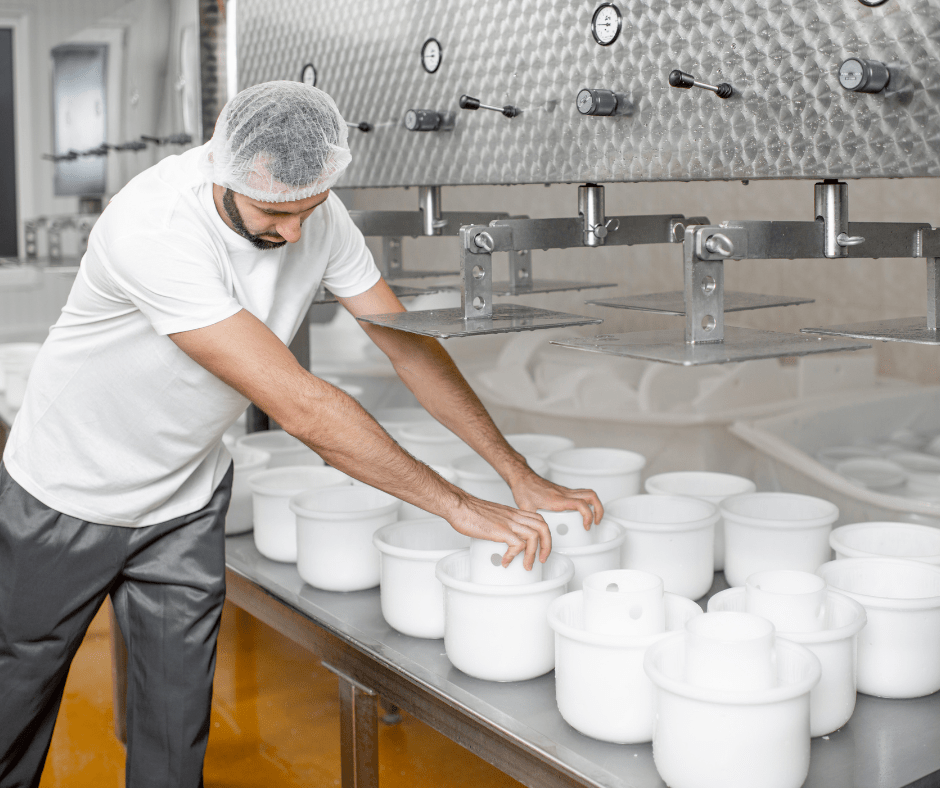
Enhancing Grip and Safety: The Ultimate Guide to Food and Beverage Flooring
In the bustling world of food and beverage establishments, where every step counts and safety reigns supreme, the ground beneath your feet plays a pivotal role. Imagine a dance between functionality and style, where the very foundation of your business not only supports your operations but also ensures the safety of your team and customers alike. Welcome to the realm of food and beverage flooring, where form meets function in a seamless blend of practicality and aesthetics. As we delve into the intricate world of “Enhancing Grip and Safety: The Ultimate Guide to Food and Beverage Flooring,” we unravel the secrets behind creating a workspace that not only meets FDA standards but exceeds them. From the importance of texture in promoting stability to the innovative solutions that redefine industry standards, this guide is your roadmap to elevating your establishment to new heights. Join us on this enlightening journey as we explore the crucial role that food and beverage flooring plays in maintaining a safe, efficient, and visually appealing space for all.
Understanding the Importance of Grip in Food and Beverage Flooring
When it comes to food and beverage flooring, grip is of utmost importance. In a fast-paced environment where spills and accidents are bound to happen, having a flooring material that provides excellent traction can significantly reduce the risk of slips and falls. The last thing you want is for your employees or customers to suffer injuries due to a slippery floor.
One of the key factors that contribute to grip in food and beverage flooring is texture. The texture of the flooring material determines its slip resistance properties. A smooth surface may look sleek, but it can be hazardous when exposed to liquids or greasy substances. On the other hand, a textured surface enhances traction by creating friction between the shoe sole and the floor, making it easier for people to maintain their balance even in wet conditions.
Another aspect to consider when understanding the importance of grip in food and beverage flooring is foot traffic. In busy establishments where there is constant movement, having a high-grip flooring material becomes even more crucial. Whether it’s servers rushing from one table to another or kitchen staff maneuvering around hot stoves and sharp utensils, a slip-resistant floor can make all the difference in preventing accidents.
Types of Flooring Materials Ideal for Enhancing Safety
Now that we understand why grip is essential let’s explore some types of flooring materials that are ideal for enhancing safety in food and beverage establishments:
Epoxy Flooring: Epoxy flooring is a popular choice for many foodservice businesses due to its durability and slip-resistant properties. It creates a seamless surface that is easy to clean while providing excellent traction even when wet.
Vinyl Flooring: Vinyl flooring offers both style and functionality. It comes in various textures, including embossed and non-slip surfaces, making it a reliable choice for areas prone to spills and moisture.
Rubber Flooring: Rubber flooring is known for its exceptional slip resistance. It provides a cushioned surface that absorbs impact, making it comfortable to stand on for long periods. Additionally, rubber flooring is resistant to chemicals and easy to maintain.
Incorporating Anti-Slip Technology: A Game-Changer in Food Industry Flooring
Advancements in technology have paved the way for innovative solutions in food industry flooring. One such game-changer is the incorporation of anti-slip technology. This technology involves adding specialized coatings or treatments to the flooring material, enhancing its slip resistance properties.
One example of anti-slip technology is the use of micro-textured surfaces. These surfaces feature tiny indentations that create additional friction, improving grip even further. Another approach is the application of additives or aggregates that increase traction when exposed to moisture or oil.
By incorporating anti-slip technology into your food and beverage flooring, you can take your safety measures to the next level. Not only will it provide peace of mind knowing that your employees and customers are protected from accidents, but it will also help you comply with FDA regulations regarding workplace safety.
Maintaining Hygiene Standards: Best Practices for Cleaning and Maintenance
In addition to enhancing grip and safety, maintaining hygiene standards is crucial in food and beverage establishments. Here are some best practices for cleaning and maintaining your food industry flooring:
Regular Cleaning: Establish a routine cleaning schedule that includes sweeping, mopping, and disinfecting the floor regularly. Promptly clean up spills or messes to prevent them from becoming hazards.
Proper Maintenance: Follow manufacturer guidelines for maintenance and use appropriate cleaning products. Avoid using harsh chemicals that can damage the flooring material or compromise its slip resistance properties.
Inspections: Regularly inspect your flooring for any signs of wear, damage, or deterioration. Address any issues promptly to prevent accidents and maintain the longevity of your flooring.
Employee Training: Educate your staff on proper cleaning techniques and safety protocols. Encourage them to report any potential hazards or maintenance concerns they come across.
In conclusion, enhancing grip and safety in food and beverage flooring is essential for creating a secure environment for both employees and customers. By understanding the importance of grip, choosing the right flooring materials, incorporating anti-slip technology, and following best practices for cleaning and maintenance, you can ensure that your establishment meets the highest standards of safety and hygiene.
Surface Technology is a licensed industrial resin and epoxy flooring contractor, able to complete projects anywhere in the United States. We work with facility owners, design-build firms, construction management firms, and general contractors to provide industrial flooring solutions for projects in the range of 1,000 to 1,000,000+ square feet. Since 1988, we have over 35+ Years in business specializing in industrial flooring and commercial flooring services for Food and Beverage Processing, Manufacturing, Warehouse, FDA Compliance, Aircraft hangar, Vehicle Maintenance and Storage, and Pharmaceutical industries. We are experts in providing abrasion-resistant, no-slip, FDA-approved flooring for businesses.

